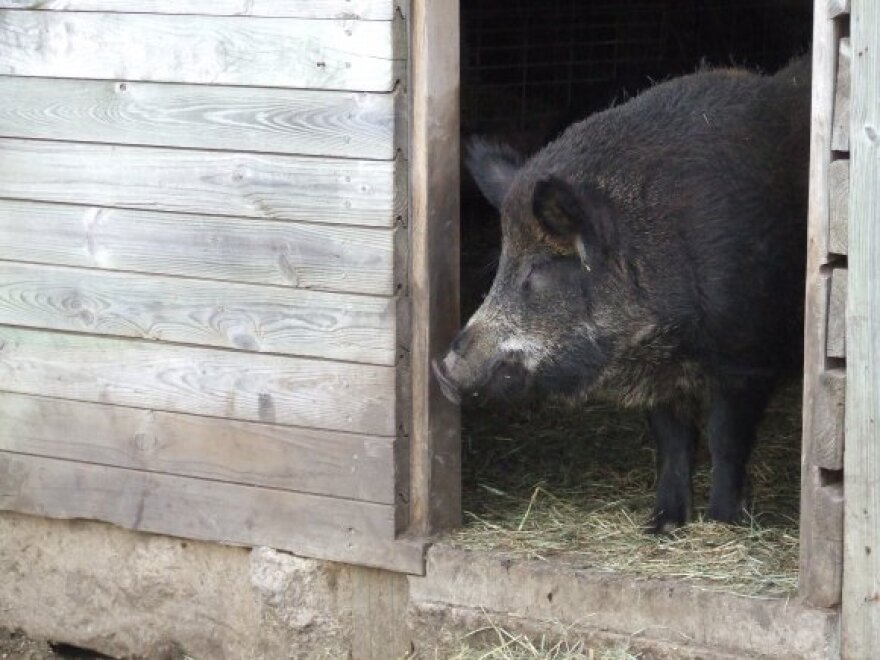The state is asking a judge in Missaukee County to fine a Marion pig farmer $700,000 dollars.
“That’s a bigger fine than these great big, huge farms get for big environmental things that they do,” says Mark Baker. The farmer is suing the state over a ban on certain pigs. He says he has about 70 hogs now considered an invasive species. The state Department of Natural Resources wants the judge to fine Baker $10,000 dollars per animal.
Both parties are expected in court Friday.
Baker claims it’s not clear enough what pigs are now illegal to raise. He says the ban is unconstitutional and too vague. It lists a series of possible characteristics, and says science may one day identify others.
“’Other characteristics not currently known,’” he quotes from the state invasive species order.
“It could be anything. It could be any pig with a small hole underneath its tail.”
Baker says his pigs are mangalitsa, but he says they have Russian boar blood and they have seven of nine traits identified in the state ban. He says all pigs are descended from the banned animals.
But Michigan Department of Natural Resources spokesman Ed Golder says the order is not vague.
“Individuals who have Russian boar, they know they have Russian boar,” he says. Golder says since the DNR started enforcing the ban last year, in most cases, those who have the banned species have admitted it in court.
Golder says Baker is the only farmer known by the DNR to be raising banned pigs for food. The ban has primarily been targeted at private hunting ranches offering boar hunts for sport. Boar hunts have ended at more than 20 ranches.
“The primary purpose we’ve seen for these animals in Michigan has been at hunting facilities and at breeding facilities where they’re being bred for the purposes of hunting,” Golder says.
Wildlife officials say the animals are not native to Michigan and when they break free they tear up Michigan forests and farm land.

